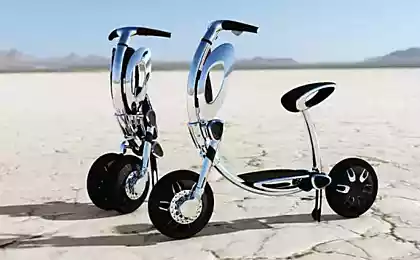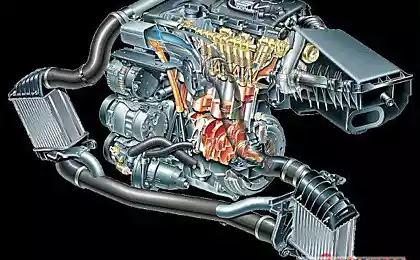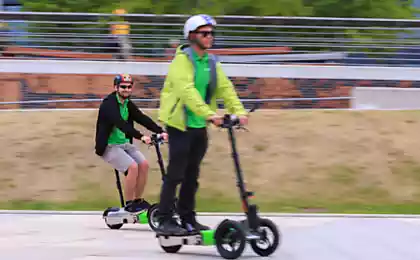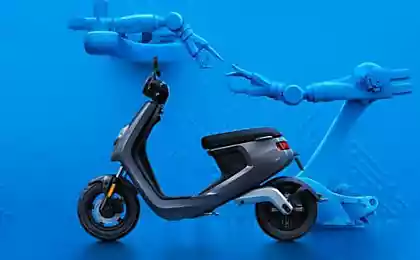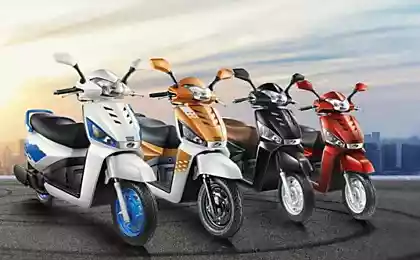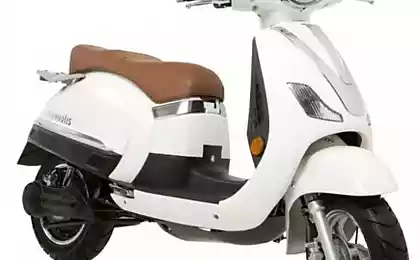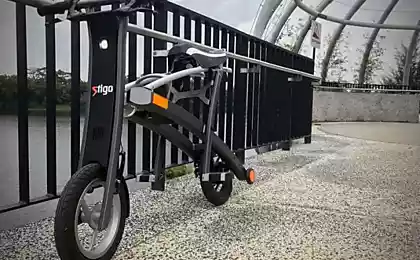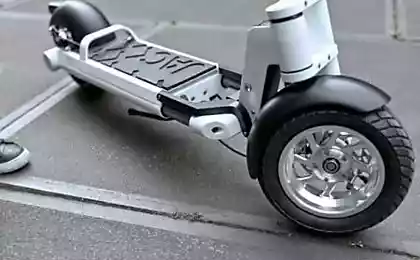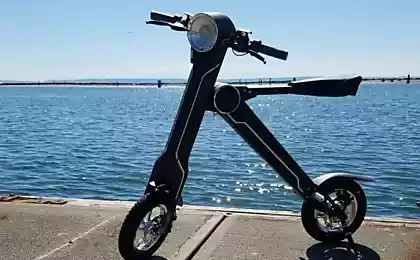383
Green electric scooter from renewable raw materials + video
Scooters the lot across the street and they look almost all the same. Of the total number of Be.e not particularly stand out in appearance, but it is a very unusual scooter analogues in the world yet.
Unlike traditional transport Ve.e is not made of metal and plastic, and composite material based on natural raw materials. More specifically, bioplastics, which made his body — reinforced monocoque without a heavy frame composed of hemp fiber and resin on a natural basis.
To dispel doubts about the uniqueness of a scooter, keep in mind that inside a hemp monocoque hides a powerful and reliable battery that can withstand up to 2000 cycles, which can be recharged in 4 hours by connecting to a conventional power outlet.
According to the founder of the company Van.eko Wanica of Kolenbrander (Vaniek Colenbrander) carbon fiber used today in the automotive industry is the strongest polluter of the environment, requiring significant energy production costs.
But the hemp fibre is a renewable raw material for the production of which does not require complex energy-consuming technologies. The resulting natural process of fibers is subjected to vacuum pressing and poured polyester resin that fills the voids.
The monocoque body, widely used in racing cars of Formula 1. Through its application, Van.eko was able to stop fifty parts that are usually welded or twisted together. According to Simon Akkaya (Simon Akkaya), one of the designers of the project, their scooter consists of only a few basic components.

Despite the simplicity of the design and appearance in retro style, Be.e densely Packed with technological innovations, among which the led lights, GPS tracker, and also nice things, like USB charger and a convenient cradle for your smartphone. On a single charge battery scooter rides up to 90 miles, reaching speeds of 60 km/h.
The idea of the scooter was first conceived by the inventors in 2007, the first prototype, confirming its viability was released in 2009. Today the company has five prototypes, each of which allowed to improve the design.
The exact date of the start of production of the world's first electric scooter from the hemp fibers is still unknown. The company hopes to Be.e will be available in Amsterdam, at least for tests in the current year.
In early August, the network launched a crowdfunding campaign to raise the funds needed to start production. If its goal (of$150,000) is reached, investors will be able to get their scooters from the first production batch in the summer of 2015.
Source: facepla.net

